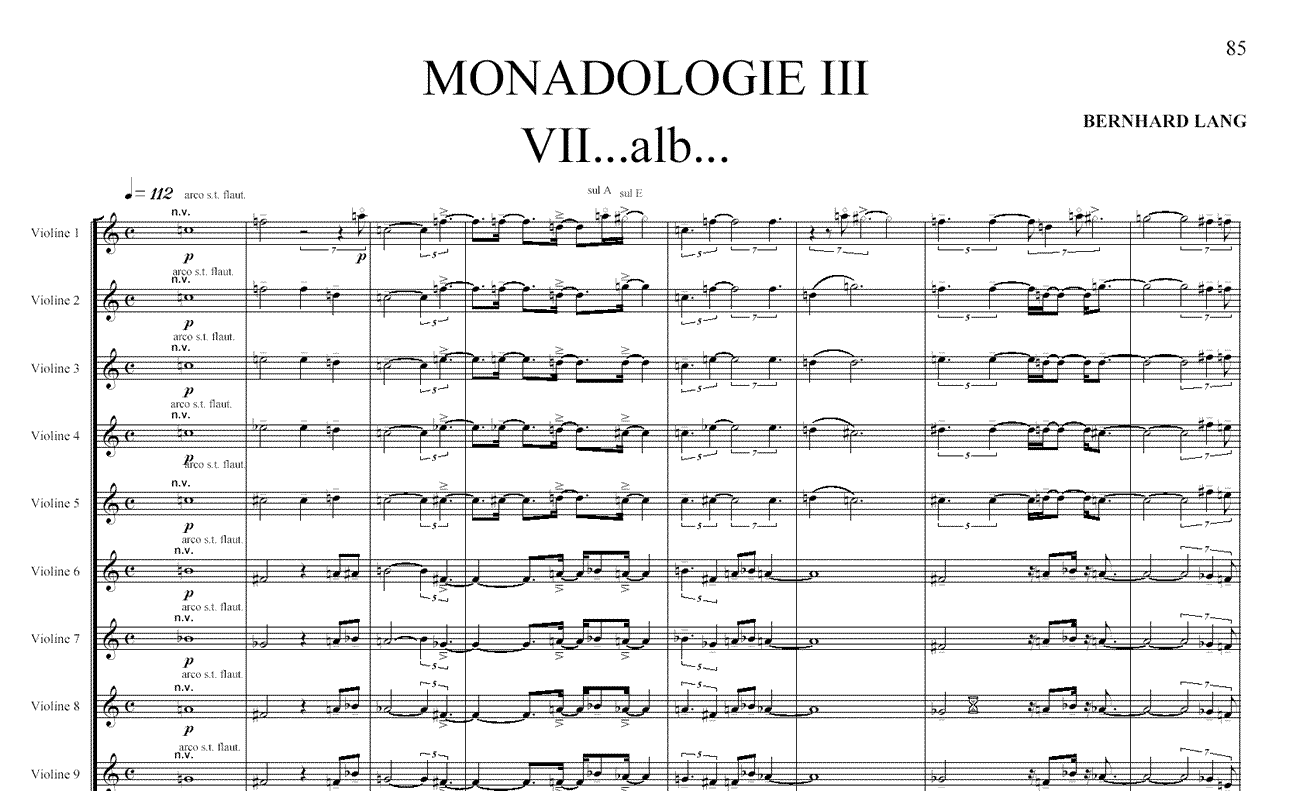
Monadology III is third in a new series of pieces developed from the preceding 'Difference-Repetition'-cycle, now comprising some thirty pieces and three music theater works.
It is based on the concept of musical cellular processings, derived from the
philosophy of Gottfried Wilhelm Leibnitz and Gilles Deleuze.
The term cellular is being applied both on the singular musical event, the atom
of sound, and the structures built upon them. These macro structures constitute
discrete loop-states, which are being differentiated all through the piece.
The individual cells are being organized in a grid which has been derived from
the concept of cellular automata, a model in computer science used to simulate
diverse kinds of growth and artificial life-forms. I did use cellular automata
before in Difference/Repetition #9, Difference/Repetition #12
and in The Stars of Hunger, and, certainly in Monadology I.
The textures resulting there from are highly complex and demand a lot from the
orchestra, producing an always shifting, sometimes chaotic flow, which always
is following strictly determined rules of change.
The organization of time is, as said before, based on differentiated loops,
granular processes dominating the most of them.
Dramaturgically Monadology III is a sequence of monadic blocks, communicating
like separate clockworks moving inside the same timestream. Their connection
is a simple vertical cinematic cut through the whole texture.
In Monadology III there is a definite preference of vertical order, being inspired mainly by the experimental film of Austrian experimental director Martin Arnold.
The piece, originally written for Dresden Staatskapelle, takes a close reference
to the cities history, impressions of the composer walking through the autumnal
city during the early hours, passing by excavations in the Old City.
The piece comprises following sections:
1 introduction
2 vision of the burning city
3 transition I
4 clockworks
5 bonds…
6 transition 2
7 nightmare
Mondology strongly refers to Richard Strauß’ Metamorphosen, the identical line up not being the only point of reference.
Bernhard Lang 2009
